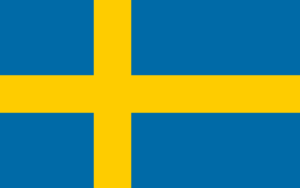Finding Your Swedish Roots
 11
11Jan
If you have Swedish ancestry, you are very fortunate, as Sweden has some of the best genealogical records of any country in the world. Thanks to a strong central government combined with a Lutheran state-sponsored church, the genealogy of those of Swedish descent can be traced back to the 1600s in many cases. Here are some online resources that our Swedish experts use on a regular basis to extend the ancestral lines of our clients.
Ancestry.com
Ancestry is a paid subscription website that has a massive selection of indexed Swedish records, particularly from the 19th and 20th centuries. If your lines already go back into Sweden a number of generations, collections such as Ancestry’s exclusive 1860-1942 birth, marriage, and death index for all of Sweden may not interest you as much. However, if you only know you have ancestors born in Sweden, but don’t know exactly where they were born, Ancestry has a number of indexed Swedish emigration, and Swedish-American church records, that can help you find answers. To further explore all their Swedish collections, go to the Card Catalog and put “Sweden” into the keywords field and run a search.
Some of their useful indexed collections include:
Emigration
U.S., Evangelical Lutheran Church in America, Swedish American Church Records, 1800-1946
U.S., Evangelical Lutheran Church in America Church Records, 1826-1969
Sweden, Emigrants Registered in Church Books, 1783-1991
Vital Records
Sweden, Indexed Birth Records, 1859-1943
Sweden, Indexed Marriage Records, 1860-1947
Sweden, Indexed Death Records, 1840-1942
Census

Riksarkivet SVAR
Until recently, there was no place to go to access Swedish records online for free. Thanks to recent legal reform, the entire online library of digitized Swedish records published on the national archive website can be accessed by anyone with an internet connection. Besides offering images of church, court, and tax records that stretch into the 1600s for most areas of Sweden, there are a number of useful indexes on the website that are exclusive to it. However, most of the website is only accessible in Swedish, and the catalog requires a high degree of familiarity with Swedish records in order to locate what is being sought for.
Some of their useful indexed collections include:
Probate Bouppteckningar (Indexed probate records from select parts of Sweden)
Census Folkräkningar (Swedish Censuses for the entire country 1880, 1890, 1900, 1910)
Vital Records
Death Indexes for parishes in Gotlands län, Jämtlands län, Västernorrlands län)
Marriage indexes for parishes in Gotlands län, Jämtlands län, Västernorrlands län
Birth indexes for parishes in Jämtlands län, Västernorrlands län
ArkivDigital
This website is an absolute must for anyone with a serious interest in researching their Swedish roots. By purchasing their “All-In-One” annual subscription, besides having access to almost 80 million images of digitized Swedish records, one has access to a number of very useful databases that are not available anywhere else. These include an index of all Household Examination records from 1860-1930. Household Examination records are census-like records that were frequently updated. ArkivDigital also has probate indexes, parish register indexes for Södermansland, and much more. Also, there are a couple databases ArkivDigital offers for free that are very useful, particularly if one’s ancestors come from either Malmöhus or Kristianstad, the southernmost regions of Sweden.
Some of their useful free indexed collections include:
- Released Prisoners for the whole country 1876-1910
- Probate Index over Skåne (Selected probate records for parts of Southern Sweden)
- Marriage Index over Skåne (An index of all exisiting marriage records in Southern Sweden from the late 1600’s to the early 1800’s)
An excellent free website with many indexed parish registers, along with some probate records. It is very incomplete, but if your ancestors came from the parishes for which it has indexes, it is an excellent resource.
Another excellent free website with many Swedish indexed collections, along with a very easy to use catalog for their non-indexed collections. They are working to index all of the Swedish parish registers from early to 1860. The website is very user-friendly, but one should be aware that their indexes for any given area of Sweden are often very incomplete. The fastest way to know if a parish has been indexed, you can go to their catalog, type in the name of the parish (you will need to use the letters å, ä, and ö to get results), and look at their church records. If you see a little magnifying glass next to digitized microfilm containing the parish register you need, it may be indexed to some degree. Clicking on that icon will permit a search in just that particular digitized microfilm.
Despite all the resources available online for research that can help anyone get started tracing their ancestors, there is no substitute for a researcher who has the skills and knowledge to conduct a proper search whether there is an index or not. Price Genealogy has a team of highly skilled professional researchers who can tackle your genealogical problem. If you are stuck, contact us and we can help you start the process of solving your problem with the help of a skilled genealogist.
Andre
